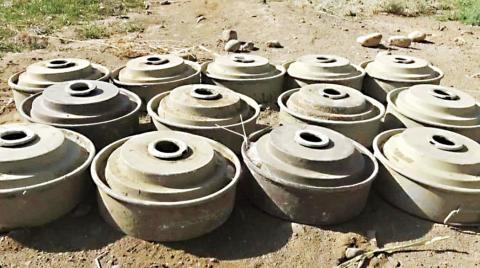USAID Has Suspended Aid to 80 Percent of Yemenis: An Appalling Abuse of Humanitarian Princip


In March, the U.S. Agency for International Development (USAID) suspended most aid for Yemenis living in territory controlled by the authorities in Sana’a, known as the Houthis. In addition to halting $73 million in ongoing assistance programs, the suspension blocks any additional USAID funding for the prevention and treatment of COVID-19 from reaching Yemenis in these areas. Although USAID has publicly justified its decision on humanitarian grounds – claiming that it will reduce the diversion of aid and pressure local authorities to halt interference with aid delivery – the move violates the same humanitarian principles that USAID is purporting to uphold. Instead of a whole-cloth suspension of aid to the North, USAID should pause only those specific aid activities that are most vulnerable to interference and diversion – in all parts of the country.
Compounding Desperation
For more than five years, Yemeni and international forces have waged a war that has created a colossal, nationwide humanitarian crisis. Though the parties to the conflict understand that they cannot win militarily, they refuse to make the compromises needed to piece together governing arrangements that can provide life-saving services and a better future for their country. The regional and global powers fueling the war seem to appreciate the damage done by the war, but appear to place greater value on their prestige and alliances than on the lives of Yemenis.
Yemen’s state institutions, currency, and private sector are in ruin. Most Yemenis lack a dependable source of income with which to buy food, water, fuel, and other basic commodities – items for sale at extravagant prices because of inflation, war profiteering, import restrictions, and double taxation. Health services are scarce, with most health care professionals working without their regular pay and roughly half of all facilities damaged or destroyed by the conflict, including many by U.S.-supported Saudi bombing. One of the only reliable businesses in Yemen has been the war business.
“You can’t imagine how desperate people are,” says Hakeem, one of Oxfam’s paid community health volunteers. Displaced from his home by the conflict, Hakeem is living with his seven children in an informal settlement of 45 families in al-Qaflah district, Amran governorate. He is helping to raise awareness and educate his community about the threat of COVID-19 and on how to stay safe from the disease. “I can see them during the night, worried, sad and totally unready to face another day. I try to calm them down and tell them it will be alright. Even with the payments from Oxfam, I am struggling, too. The other day I couldn’t afford to buy milk for my child. He was malnourished two years ago and I took him to a hospital to receive medical care on credit. I couldn’t pay back until now and I can’t follow up on his condition because of that.”
The situation in al-Qaflah is typical of those most vulnerable Yemeni communities that are at least fortunate enough to receive aid. Though the crisis in Yemen can be resolved only through a nationwide ceasefire, political settlement, and economic revival, humanitarian assistance has prevented a descent into widespread famine. In this sense, humanitarian aid resembles an ongoing blood transfusion: insufficient to completely heal the patient, but vital to her continued survival. For most of the past five years, international humanitarian assistance has reached the majority of Yemen’s approximately 30 million people. Remittances sent from the Yemeni diaspora (which have steeply declined in recent months due to COVID-19), locally funded assistance, and everyday generosity between neighbors, family, and friends have been at least as important as international aid in preventing a greater catastrophe in Yemen – but these sources cannot compensate for a sudden evaporation of humanitarian assistance from foreign donors.

Aden — Yemen Airways has announced new updates to its ticket cancellation (VOID) policy, introducing financial penalties on travel agents in…

Geneva – The United States announced that Yemen will not be among the countries benefiting from a new $2 billion funding pledge for United Na…

Paris — The French humanitarian organization Acted announced that it has delivered cash assistance to nearly 89,000 people affected by displa…